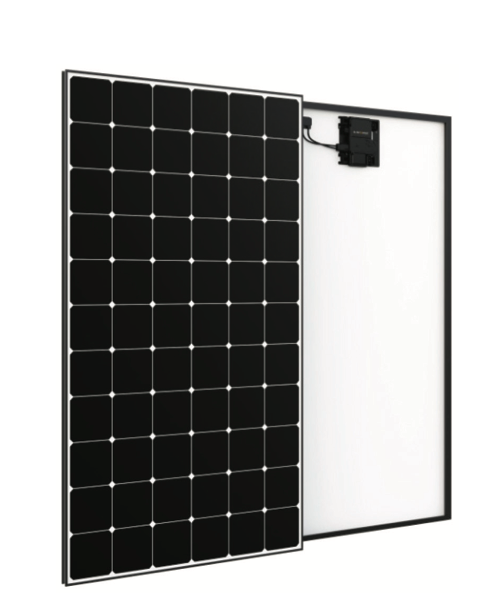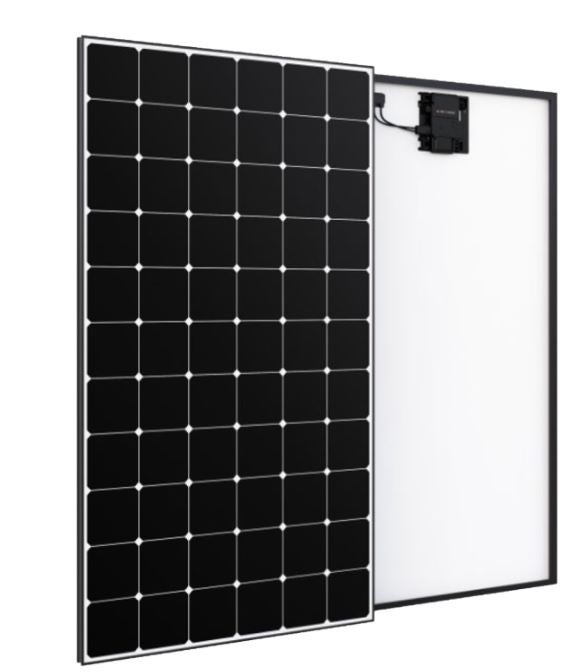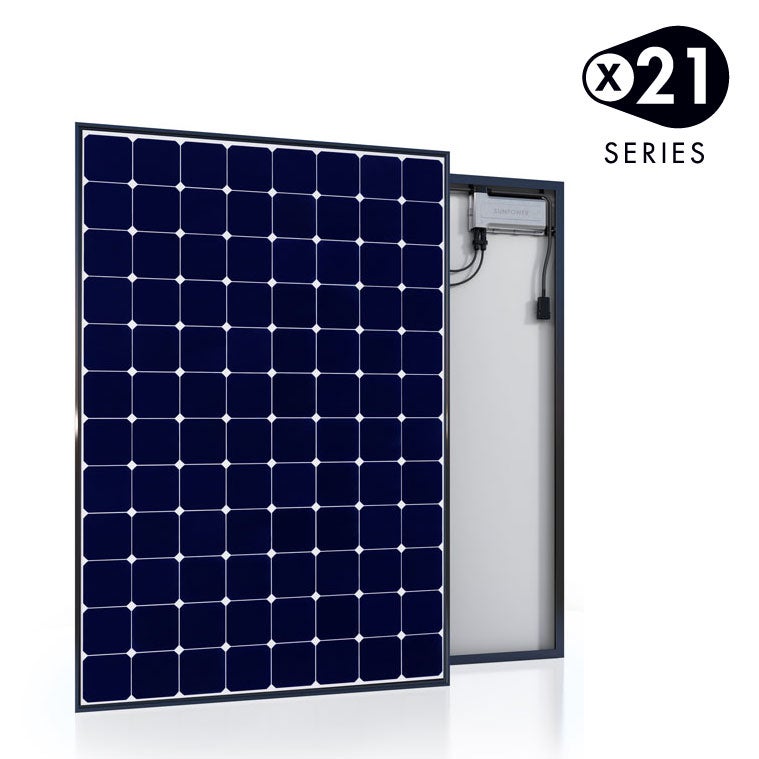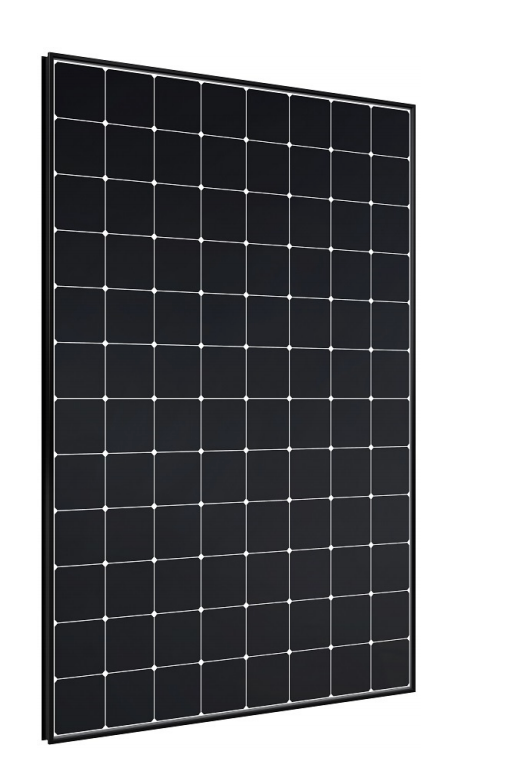One of the most well-known names in solar is SunPower. The California-based business was established in 1985 with the intention of creating concentrated solar systems, but it has since evolved into one of the most well-known producers of home solar panels.
SunPower declared that it would stop producing solar panels in 2019. SunPower would continue to concentrate on constructing and maintaining solar systems while a new business, Maxeon Solar, would focus on producing high-efficiency solar panels.
There is no doubting the fantastic technical specs and excellent warranty of SunPower’s premium panels. But are they really worth the high cost? Let’s investigate.
What products does SunPower offer?
SunPower has four lines of residential solar panels:
- M Series
- A Series
- X Series
- E Series
SunPower sells business versions of their Series A, X, and E panels in addition to residential solar panels. Large-scale commercial installations can use the company’s P Series panels.
Each of these product lines differs in terms of how it performs and how it looks, making it more appropriate for particular purposes. Let’s look more closely.
SunPower M Series solar panel

The Sunpower M Series is an ultra-powerful AC solar panel with power ratings up to 440 W and a record-breaking efficiency rating of 22.8%
| Wattage | 420 W – 440 W |
| Efficiency rating | 21.7% – 22.8% |
| Power tolerance | -0/+5% |
| Cell type | Monocrystalline Maxeon Gen 6 |
| Product warranty | 25 years |
| Performance warranty | 25 years; 98% power capacity after Year 1; no more than 0.25% annual degradation until Year 25 |
The M Series product line from SunPower contains their most recent and potent solar panels. The SunPower Equinox system, a solar system made up solely of SunPower-branded goods, is compatible with M Series panels, which are AC solar panels with built-in microinverters.
The Maxeon Gen 6 solar cell, the most recent model, is used in the SunPower M Series modules. The company’s record-breaking A Series panels employed Gen 6 cells, which are bigger still. This made the M Series the most effective and potent household solar panel on the market.
Homes with little roof space for solar systems are best suited for these panels. Due to the M Series panels’ incredible output, which ranges from 420 to 440 Watts, you may install fewer panels and yet generate a significant amount of electricity. The fact that you can only use SunPower products if you choose these panels also means that they will probably cost far more than most other panels available right now.
SunPower A Series solar panel

The SunPower A Series AC solar panel’s specs are some of the most impressive on the market.
| Wattage | 390 W – 420 W |
| Efficiency rating | 20.9% – 22.5% |
| Power tolerance | -0/+5% |
| Cell type | Monocrystalline Maxeon Gen 5 |
| Product warranty | 25 years |
| Performance warranty | 25 years; 98% power capacity after Year 1; no more than 0.25% annual degradation until Year 25 |
One of SunPower’s most well-liked and outstanding product lines is the A Series. A Series solar panels are some of the most potent solar panels that homeowners can install on their roofs right now, with power ratings ranging from 370 to 420 watts.
The Maxeon Gen 5 solar cell is to be credited for its exceptional performance. More sunlight can be turned into power because to these solar cells’ 65% bigger size compared to the solar cells found in the X and E Series panels. But compared to the Gen 6 cells used in the M Series, the Gen 5 cells are around 5% smaller.
Both the conventional DC solar panels with a white or black backing and the AC solar panels with an integrated microinverter are available in the A Series. Similar to the M Series, the SunPower Equinox system is the target audience for the AC version of the A series.
With the A Series, you can install fewer panels while still meeting your energy needs, making it ideal for homes with a small amount of roof space appropriate for solar installations. But keep in mind that the A Series is more expensive than other available panels (more on that below).
SunPower X Series solar panel

The SunPower X Series AC solar panel.
| Wattage | 327 W – 370 W |
| Efficiency rating | 20.4% – 22.7% |
| Power tolerance | -0/+5% |
| Cell type | Monocrystalline Maxeon Gen III |
| Product warranty | 25 years |
| Performance warranty | 25 years; 98% power capacity after Year 1; no more than 0.25% annual degradation until Year 25 |
The SunPower X Series panels have somewhat lower power ratings than the SunPower A Series due to the use of smaller SunPower Maxeon Gen III solar cells, but they are still enough for the needs of the majority of households. Additionally, the X Series has exceptionally good efficiency ratings.
The X Series panels, like the A Series, are available with a white or black backing and as either DC or AC solar panels. The Cradle to Cradle Bronze Award honors the X Series as a sustainably built product, and these solar panels are the first to receive it.
Due to its excellent efficiency ratings, the X Series is another panel that is suitable for homeowners with small roof spaces.
SunPower E Series solar panel
 SunPower E Series panel.
SunPower E Series panel.
| Wattage | 320 W – 327 W |
| Efficiency rating | 19.4% – 20.4% |
| Power tolerance | -0/+5% |
| Cell type | Monocrystalline Maxeon Gen II |
| Product warranty | 25 years |
| Performance warranty | 25 years; 98% power capacity after Year 1; no more than 0.25% annual degradation until Year 25 |
Even if the E Series doesn’t have the same eye-catching features as other SunPower solar panels, it doesn’t imply it’s a bad product. The E Series, which has power ratings between 320 W and 327 W and efficiency ratings on the higher end of typical, can be seen of as the company’s most “standard” panel. Both DC and AC variants of the E Series are available from Sunpower.
The E Series is a reliable solar panel that can supply almost every homeowner’s energy requirements.
How much do SunPower solar panels cost?
Although SunPower panels are of great quality, their cost is equally considerable. For SunPower solar panels installed, you should budget at least $3.30 per watt (cash purchases of solar systems typically cost less per watt than financed systems because they don’t include items like broker fees).
The average price for conventional panels in the US is $3.00 per watt, thus $3.30 per watt is more expensive. Again, the lowest price you can anticipate is that. Choosing one of their more expensive models, such as the 420 W Series M, could result in an even greater cost.
The final cost of a SunPower solar system will differ depending on a few elements, including your location, the panels you select, and the size of the system. Before taking into account incentives, the prices for various-sized SunPower solar systems are shown in the following table:
| System size | Cost before incentives |
|---|---|
| 4 kW | $12,520 |
| 6 kW | $19,800 |
| 8 kW | $26,400 |
| 10 kW | $33,000 |
| 12 kW | $39,600 |
It’s also crucial to keep in mind that if you finance the system, whether it be through a lease, loan, or PPA, the cost of a SunPower quote would be significantly greater. When finance was taken into consideration, some clients reported receiving price bids as high as $6.50 per watt.
How do SunPower solar panels compare to other solar panels?
Power output rating
A solar panel’s power output rating, often known as its wattage, is a gauge for how much electricity it can generate.
The maximum power output rating available for a residential solar panel today is found in SunPower’s M Series 440 W panel. You may use fewer solar panels to pay your electric bill because to the high power rating.
The X and E series both have respectable power ratings in addition to the M and A Series. The power rating won’t be a problem, whichever SunPower panel you use.
Efficiency rating
The solar panel’s efficiency rating tells you how much of the sunlight that hits it is actually converted into power. SunPower has some of the highest efficiency ratings available, just like with power ratings.
Without a doubt, having a high efficiency rating is fantastic, but you shouldn’t place a lot of importance on it. Most homes don’t require any more than that, therefore any quality solar panel brand you select will most certainly have efficiency ratings above 18%.
Efficiency of solar panels is only really important if you have a small amount of roof space, although many solar panel firms like using high efficiency numbers to outperform their rivals. Additionally, having high efficiency ratings like SunPower’s can significantly increase the final cost. Therefore, you must determine whether investing in the most effective solar panels available is worthwhile.
Power tolerance
Another important feature to consider when purchasing solar panels is power tolerance, yet it is frequently disregarded. See, even if solar panels have their stated power output, their real electricity production might vary, even while environmental conditions remain the same.
Power tolerance comes into play in this. The power tolerance explains how much a panel’s power output can truly alter in real-world circumstances.
Power tolerance ratings for solar panels typically range from -0/+3% to -0/+5%. What does that exactly mean? The -0 indicates that, under Standard Test Conditions, the panel will always perform at least to its rated capacity (STC). The +5% denotes the possibility of producing 5% extra power under STC.
The power tolerance rating for all of SunPower’s panels is -0/+5%, which is in line with industry norms.
Cell type
Each series of solar panels from SunPower uses a different type of solar cell, which is the primary distinction between them. They are all Maxeon monocrystalline solar cells, however the M Series uses the Maxeon Gen 6, which is the newest and largest solar cell and what gives the M series its tremendous power.
The Maxeon Gen 5 solar cells used in the A Series are a little bit smaller than the Gen 6 cells, but they nevertheless generate a significant amount of electricity rather well. SunPower’s A Series solar panels are some of the most potent home panels on the market right now, albeit falling a little short of the M Series in terms of power production and efficiency.
The Maxeon Gen III solar cells used in the X Series are still very efficient, but their size restricts how much electricity they can generate. And finally, the Gen II Maxeon solar cells used in the E Series are a little bit older and do not employ the same state-of-the-art technology as the Gen III and Gen 5 cells.
Is SunPower’s warranty all it’s cracked up to be?
Product warranty
The product warranty will be discussed first. With a 25-year product warranty, SunPower solar panels are guaranteed to be free from material and workmanship flaws as long as they are used as intended and installed properly.
The majority of solar panel manufacturers only provide a 12-year product guarantee, or they require further registration in order to activate the 25-year warranty.
Performance warranty
The performance warranty comes next. The performance warranty gives you an idea of how your solar panels will perform as they age because solar panels degrade with time.
The solar panels from SunPower will perform at least 98% of their original rated capacity in the first year. The panels won’t deteriorate more than 0.25 percent annually for the following 24 years.
This annual degradation rate is half of the average industry-wide degradation rate of 0.5%. (the lower, the better). SunPower panels therefore generate more energy over time than other solar panels due to their slower rate of degradation. One of the best warranties we’ve ever seen is this one.
Should you get SunPower solar panels for your home?
You can’t go wrong installing SunPower solar panels on your roof, which is why they have an Elite ranking in SolarReview’s official solar panel review. Over 500 respected solar installers make up SunPower’s strong network, many of which are among the best in the nation. This indicates that you will receive premium panels, a top-notch warranty, and premium installation.
But the cost of all those wonderful things is high. If money is an issue, you might want to have a look at some of our other top-ranked solar panel brands, such Qcells or LONGi Solar, which offer excellent quality at a somewhat reduced price.
Most homes that install solar will save money on their electricity costs, whether they use SunPower panels or panels from another producer. To determine whether solar panels are the appropriate investment for you, use our solar panel calculator to estimate the savings you can expect when you go solar.








